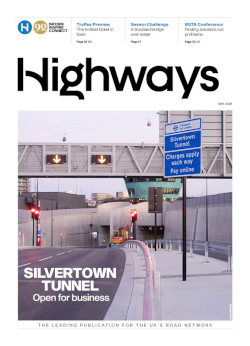UK software company Paragon says it's helping retailers get their products into stores faster by guiding lorry drivers around predicted traffic hot spots and HGV-restricted zones.
Its new system uses pre-set rules to automatically route HGVs clear of major public events and to ensure roads with lorry bans are avoided, lowering the risk of incurring penalty fines.
Paragon Software Systems, the vehicle routing and scheduling software used by retailers such as Sainsbury's, ASDA and Fullers, is calling the software "a game changer for the transport industry".
The company says that, when approaching traffic hot spots or a congestion charge zone, most drivers can simply check their Sat Nav and look for the fastest alternative route to their destination but that lorry drivers are not able to do this because their pre-planned routes are monitored to avoid HGV-restricted zones and physical limitations like low bridges.
Paragon's Route Control automatically provides drivers with a different set of routes to avoid congestion caused by large crowds attending events like the Rugby World Cup, Notting Hill Carnival or a Royal Wedding. The company says that even local hot spots are catered for, like schools at child drop-off times, to ensure that deliveries can always be made safely and in the fastest time possible.
"Traffic congestion is a major issue for those delivering goods to our shops and homes," said William Salter, Paragon's Managing Director. "Computer software plays a big part in planning the best possible route for each vehicle. However, transport planners spend considerable time amending plans to accommodate conditions that can delay or even prevent a journey. If a driver doesn't follow the planned route, then further time needs to be spent working out whether those deviations were legitimate or not."
Paragon's Route Control software is set up with details of events using a simple calendar, which can be stored and re-used. Algorithms within the software then calculate the best driver schedules every time. In addition to major public events, the software can also be used to manage time-related local authority restrictions on HGVs in cities around the world.
"Transport operations that ensure goods are delivered on time are complex," added Mr Salter. "Creating rules that allow for legitimate deviations from the normal fastest route at specific times by vehicle type reduces the level of manual intervention required by the transport planner, and ensures that the schedule reflects what is actually happening on the roads. After talking to transport and logistics industry players about the challenges they face, our team of software developers has now built the functionality to help them 'close the gap'."





